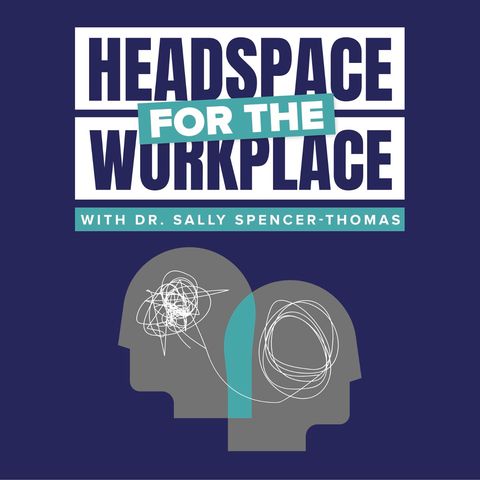Supporting Our Mental Health Caregivers at Work: Interview with David Otey | Episode 21

Descarga y escucha en cualquier lugar
Descarga tus episodios favoritos y disfrútalos, ¡dondequiera que estés! Regístrate o inicia sesión ahora para acceder a la escucha sin conexión.
According to the National Alliance for Caregiving and AARP, in the United States, approximately 53 million adults were unpaid caregivers to an adult or child with special needs in 2020....
mostra másBut millions of people are also playing the role of caregivers providing support for people struggling with mental health challenges.
Caregiving — for physical- or mental health-related needs — can have a significant impact on caregivers' mental health due to the stress, emotional strain, and time commitment involved. Studies have shown that caregivers are at a higher risk for depression, anxiety, and other mental health issues compared to the general population.The constant demands of caregiving can lead to burnout, which can exacerbate mental health challenges. Caregivers often face financial strain due to the costs associated with caregiving, such as medical expenses, transportation, and time off work. Caregivers frequently report a reduced quality of life, disrupted sleep patterns, and a decline in physical health due to the demands of caregiving.The emotional toll of witnessing a loved one's illness or decline can also contribute to mental health challenges. Caregiving responsibilities can impact caregivers' ability to maintain their employment. Many caregivers struggle to balance work and caregiving duties, which can lead to absenteeism or reduced productivity. Some caregivers may face discrimination or lack of understanding in the workplace, which can further affect their mental health. Caregivers of individuals with mental health conditions often experience high levels of stress, anxiety, and emotional strain. The unpredictability of their loved one's condition and the challenges of managing symptoms can be particularly demanding.The bias and discrimination associated with mental health can also affect caregivers, leading to feelings of isolation and shame. Caregivers often play a role in advocating for their loved ones, which can involve challenging stigma and discrimination in society, as well as advocating for better mental health services and resources. In this interview, I chat with David Otey about his journey through depression and his role as a caregiver for others. We highlight these three action steps:
- Normalize asking for help — for a person experiencing distress as well as for the caregiver
- Make seeking professional help a first step, not a last resort.
- In times of change, ask one simple question that leaders can ask to help people get unstuck.
Información
| Autor | Dave Kieta |
| Página web | www.sallyspencerthomas.com |
| Etiquetas |
Copyright 2024 - Spreaker Inc. an iHeartMedia Company
